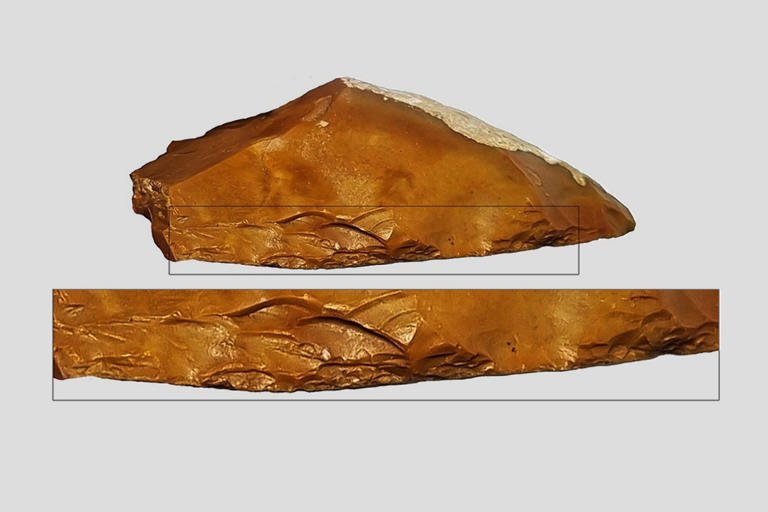Pre-human technology! New excavations in Israel unearth 400,000-year-old tools
Homo sapiens were not the first hominids to make tools. In Ethiopia, researchers have already found stone utensils from 2.6 million years ago. Now, new excavations in Israel reveal more items that predate anatomically modern humans, unearthed in the caves of Jaljulia and Qesem.
These utensils, known among experts as “Quina scrapers”, were discovered in Israel and date back at least 400 thousand years. This finding is significant, as the first Homo sapiens appeared in Africa around 300,000 years ago. Israeli scrapers, therefore, are at least 100,000 years older than the first sapiens.
#newsonleo #technology #history

Quina scrapers were originally discovered in the French region of the same name. These tools helped ancient butchers, probably of the Homo erectus species, butcher, cut and process the meat and skin of their prey, which were mainly fallow deer, a type of mammal found in the Middle East and southern Europe.
Recent studies, including a publication in the scientific journal Archaeologies by scientists at Tel Aviv University, explain how these 400,000-year-old tools were found and highlight their importance in the technological history of hominins. The Levant region, including Israel and Lebanon, has experienced several climatic and ecological changes that have directly impacted the lives of its inhabitants.